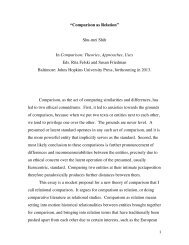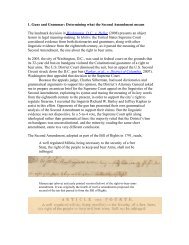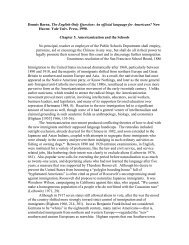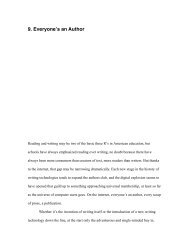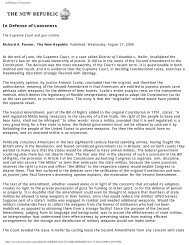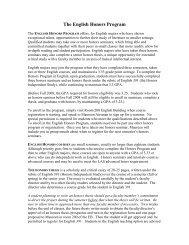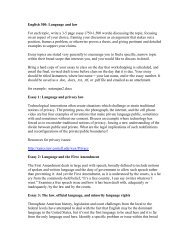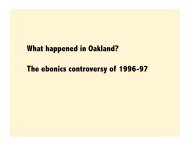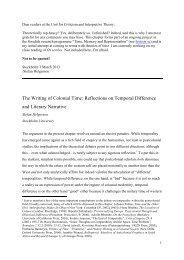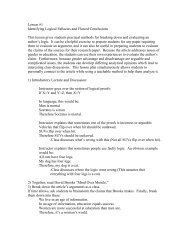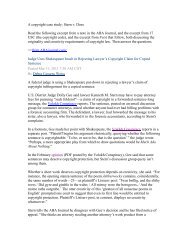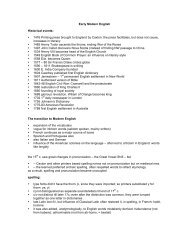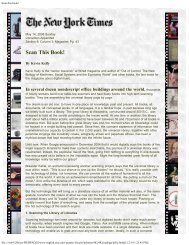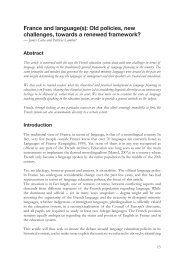Guns and Grammar: the Linguistics of the Second ... - English
Guns and Grammar: the Linguistics of the Second ... - English
Guns and Grammar: the Linguistics of the Second ... - English
You also want an ePaper? Increase the reach of your titles
YUMPU automatically turns print PDFs into web optimized ePapers that Google loves.
The linguists’ amicus brief<br />
Dennis Baron, <strong>Guns</strong> <strong>and</strong> <strong>Grammar</strong>, 4<br />
Opponents <strong>of</strong> gun control have argued that <strong>the</strong>re are linguistic reasons for<br />
dismissing <strong>the</strong> first part <strong>of</strong> <strong>the</strong> <strong>Second</strong> Amendment as merely “prefatory” or<br />
“preambulatory,” even though18 th -century readers would never have seen it that way. In<br />
addition, <strong>the</strong>y reinterpret <strong>the</strong> meanings <strong>of</strong> <strong>the</strong> phrase bear arms <strong>and</strong> <strong>the</strong> word militia in<br />
ways that support <strong>the</strong>ir cause but go against <strong>the</strong> sense those words had in <strong>the</strong> federal<br />
period, <strong>and</strong> continue to have today. In support <strong>of</strong> <strong>the</strong> District <strong>of</strong> Columbia’s appeal to<br />
reverse that lower court ruling, we presented linguistic evidence arguing,<br />
1. that <strong>the</strong> <strong>Second</strong> Amendment was intended to be read in its entirety;<br />
2. that <strong>the</strong> first part <strong>of</strong> <strong>the</strong> amendment is both syntactically <strong>and</strong> semantically tied to<br />
<strong>the</strong> second;<br />
3. that <strong>the</strong> first part <strong>of</strong> <strong>the</strong> amendment specifies <strong>the</strong> reason for <strong>the</strong> second, that <strong>the</strong><br />
right to keep <strong>and</strong> bear arms is tied directly to <strong>the</strong> need for a well-regulated militia;<br />
4. that <strong>the</strong> ordinary <strong>and</strong> customary meaning <strong>of</strong> <strong>the</strong> phrase bear arms in <strong>the</strong> 18 th<br />
century is tied to military contexts, not to contexts involving hunting or self<br />
defense;<br />
5. <strong>and</strong> that <strong>the</strong> word militia refers in <strong>the</strong> federal period to an organized <strong>and</strong> trained<br />
body <strong>of</strong> citizen-soldiers, or to those eligible to serve in such a body, not to any<br />
<strong>and</strong> all Americans, most <strong>of</strong> whom were actually barred from militia service.



